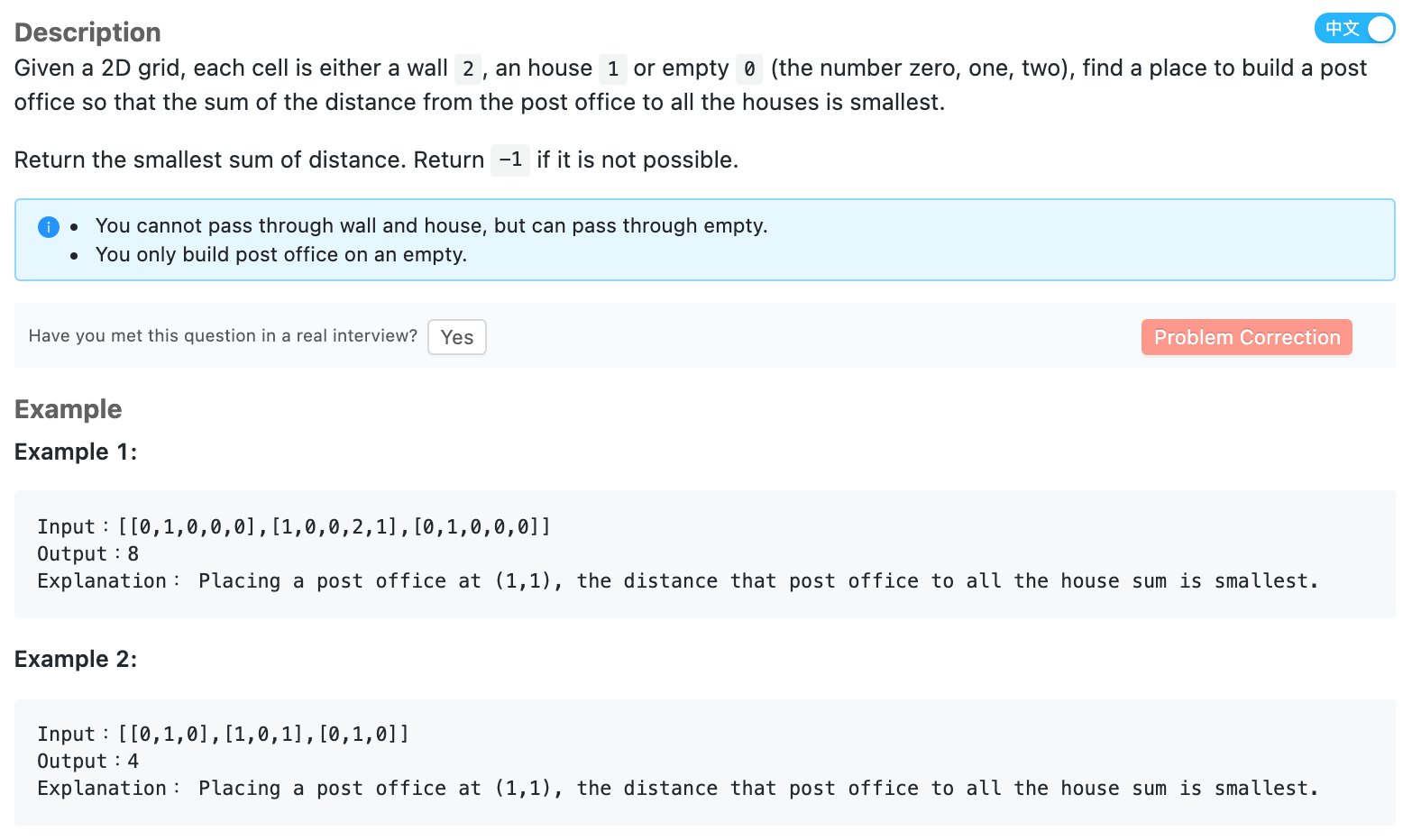Build Post Office II
franklinqin0 BFS

# Input & Output
@param grid: a 2D grid
@return: An integer
1
2
2
# Solution
Let be the number of rows and be the number of columns of grid.
# Layered BFS
Rather than positioning the post office from empty spaces, we find it from houses.
For every empty space, we record:
- how many houses can reach the position (
countsincremented by if position is in range) - sum of steps to reach the position (
dist)
If every space cannot be reached by all houses (counts[i][j]!=num_houses), then return ; otherwise, there exists some space that can be reached by all houses, return the min summed distance.
Complexity
time:
space:
DIRECTIONS = [(1, 0), (-1, 0), (0, 1), (0, -1)]
def shortestDistance(self, grid):
n, m = len(grid), len(grid[0])
num_houses = 0
res = sys.maxsize
dist = [[sys.maxsize for _ in range(m)] for _ in range(n)]
counts = [[0 for _ in range(m)] for _ in range(n)]
def bfs(i, j):
visited = [[False for _ in range(m)] for _ in range(n)]
queue = [(i, j)]
step = 0
while queue:
for _ in range(len(queue)):
x, y = queue.pop(0)
if dist[x][y] == sys.maxsize:
dist[x][y] = 0
# dist incremented by # of layers
dist[x][y] += step
for dx, dy in DIRECTIONS:
nx, ny = x+dx, y+dy
# if position is in range, not visited, and a space
if 0 <= nx < n and 0 <= ny < m and visited[nx][ny] == False and grid[nx][ny] == 0:
visited[nx][ny] = True
# `counts` increments
counts[nx][ny] += 1
queue.append((nx, ny))
# step increments
step += 1
# BFS from houses
for i in range(n):
for j in range(m):
# point is a house
if grid[i][j]==1:
bfs(i, j)
num_houses += 1
for i in range(n):
for j in range(m):
# if every house can reach
if counts[i][j] == num_houses and dist[i][j] < res:
res = dist[i][j]
return res if res!=sys.maxsize else -1
1
2
3
4
5
6
7
8
9
10
11
12
13
14
15
16
17
18
19
20
21
22
23
24
25
26
27
28
29
30
31
32
33
34
35
36
37
38
39
40
41
42
43
44
45
46
47
48
49
2
3
4
5
6
7
8
9
10
11
12
13
14
15
16
17
18
19
20
21
22
23
24
25
26
27
28
29
30
31
32
33
34
35
36
37
38
39
40
41
42
43
44
45
46
47
48
49